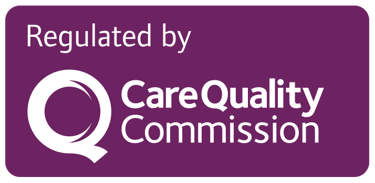PSL’s Vision for Small Supports
Plaza Services Limited (PSL), with the guidance and leadership of the entire team, is committed to creating a small, rooted, and enduring organisation where people with complex lives have:
Maximum control over their own support and decisions,
Meaningful relationships with people who truly know and care for them, and
A real home within their own community — not just a placement.
We will grow with integrity, stay personal by design, and stand by people through every change and challenge.
Our promise:
To make the Small Supports vision real, because with management's guidance, PSL’s dedicated team will see us through.
Together, we make independence possible
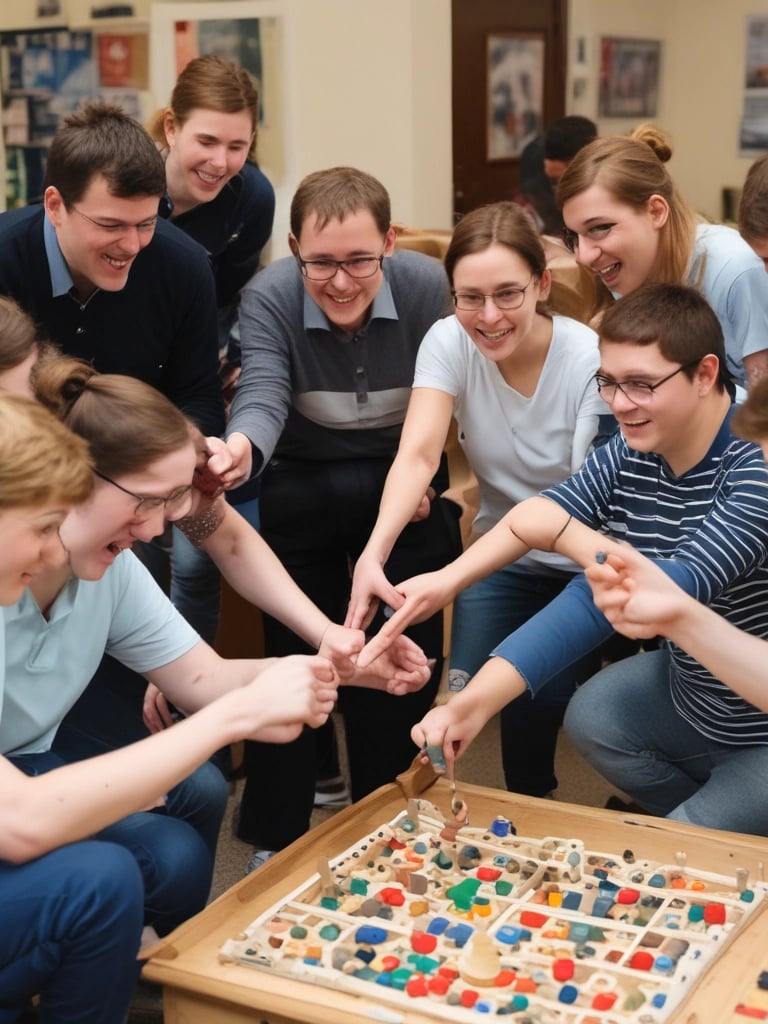



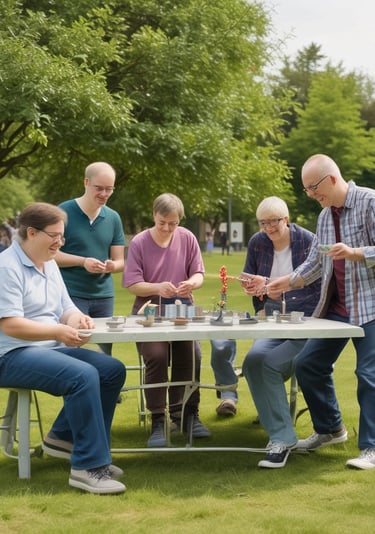

Why NDTi Promotes Small Supports
NDTi recognised that many people with learning disabilities and autistic people were being placed in large, impersonal services or distant residential institutions. These arrangements often undermined independence, family contact, and quality of life.
The Small Supports programme was created to show local authorities and commissioners that a different model is possible:
More personalised,
More sustainable,
Often less costly than institutional placements,
And far more consistent with human rights and the principles of the Transforming Care agenda.
“Changing lives, one small support at a time.”
“Built around people — not services.”
“Ordinary lives. Extraordinary possibilities.”
“Small enough to care, strong enough to stay.”






About Small Supports
Small Supports are community-rooted organisations offering highly personalised, long-term support for people with learning disabilities, autism, and other complex needs.
They enable people to live in their own homes, on their own terms, with trusted supporters who understand them well.
Each organisation is built around the person, their family, and community connections, providing an alternative to institutional or large-scale commissioned care.
Core Characteristics of Small Supports
Maximum control from the start – Individuals and their chosen networks lead decisions from day one, with support designed to grow their control over time.
Aspirations first, support second – Conversations start with the person’s goals and desired life; support is then tailored around those aspirations.
Individually matched staff – Supporters are recruited specifically around the person and their life, not across services.
Real homes, real choice – People choose where and with whom they live, maintaining clear separation between housing and support.
Individualised funding – Budgets are sustainable, transparent, and designed around the individual’s needs and life outcomes.
Commitment through change – Organisations stay with people through life’s transitions, rather than withdrawing or selling services on.
Rooted in local community – Small Supports are embedded in local networks, culture, and community activity.
Intentionally small scale – Growth is slow and relational, typically three to five people per year, ensuring every person is known, valued, and well supported.
Practice-led design – The approach cannot be replicated by large services adopting elements; success depends on living these principles throughout.
“Your voice. Your home. Your life.”




Who Runs It
NDTi (National Development Team for Inclusion): Leads the programme, provides expertise, mentoring, and evaluation.
Local Government Association (LGA): Supports policy adoption by councils.
NHS England: Provides funding and national backing.
Pioneering Small Support Organisations: e.g. Beyond Limits, C-Change, Positive Support for You, who demonstrate the model in action.
LGA: Local Government Association (LGA)
The national membership body for local authorities in England and Wales.
Represents councils and works on their behalf to influence government policy, legislation, and funding decisions.
Provides support, resources, and improvement programmes to help councils deliver better services.
In social care, the LGA often partners with the Department of Health and Social Care (DHSC), NHS England, and others to shape policy, guidance, and commissioning practice.
NDTi: National Development Team for Inclusion (NDTi)
An independent not-for-profit social change organisation.
Works to promote inclusion and equality for people who are disabled, older people, or those at risk of exclusion.
Known for developing and supporting the Small Supports programme and other community-based care initiatives.
Provides research, training, and consultancy to local authorities, providers, and communities to embed person-centred, rights-based support.
Funded projects often include housing, employment, health, and social care transformation.
Together:
The LGA and NDTi often collaborate (with DHSC, NHSE and others) to promote community-based, person-centred approaches like Small Supports, to help local authorities and providers move away from institutional or large-scale models of care.
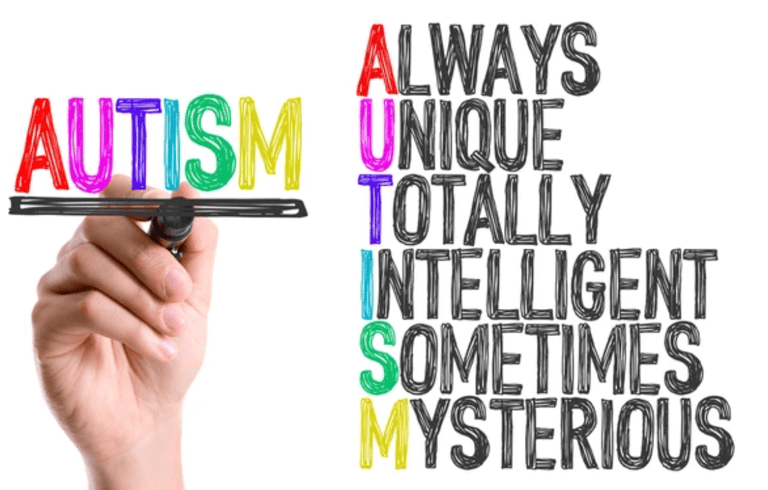



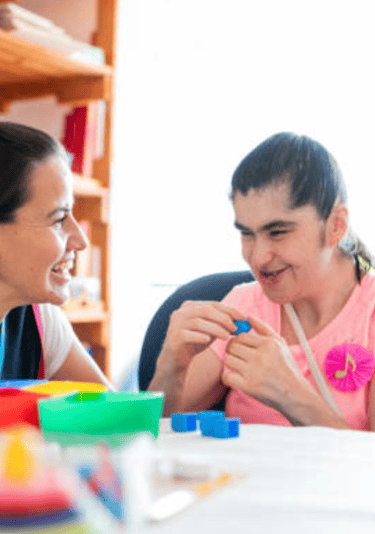

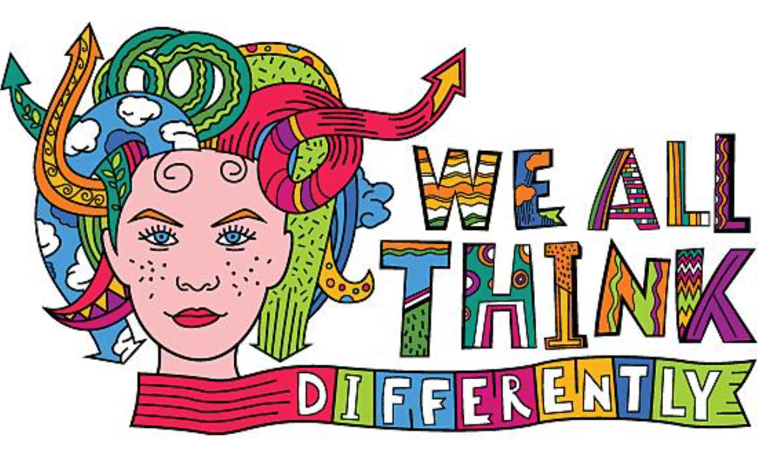



1. Department of Health & Social Care (DHSC)
Provides national policy direction and funding.
Wants to see fewer people in institutional settings and more people supported in their own homes/communities.
Small Supports Commissioning Framework –
Who Does What?


2. Local Government Association (LGA)
Role: National membership body for councils (commissioners).
Works with DHSC to distribute funding and support local authorities to transform social care.
Publishes guidance, case studies, and toolkits for councils to commission differently.
Provides improvement programmes for local authority commissioning teams (e.g., workforce, sustainability, market shaping).
3. National Development Team for Inclusion (NDTi)
Role: Specialist change organisation.
Leads the Small Supports Programme (funded by DHSC, supported by LGA).
Works directly with local authorities to:
Help set up small, personalised providers (like PSL).
Train and mentor commissioners on person-centred, sustainable commissioning.
Share best practice across councils and providers.
Provides the 9 Key Characteristics of Small Supports framework.
4. Local Authorities (Commissioners)
Put policy into practice by commissioning care and support services.
Use the LGA/NDTi guidance to design contracts and frameworks that encourage small, bespoke providers.
May fund and mentor organisations like PSL through Innovation Grants or DPS/Framework access.
Why NDTi
We believe everyone deserves a good life — connected to and contributing to their community.
With our decades of experience, we drive long-term, transformational change to improve the lives of people who are often excluded — including those with learning disabilities, autism, and older adults.
We know that Community and Day Services play a crucial role in people’s lives. These services hold great potential for inclusion, but we also recognise the challenges in making meaningful change. Our expertise helps services transition into inclusive, community-embedded models that benefit individuals, families, and local communities alike.
As an independent, not-for-profit organisation, we collaborate with people, communities, policymakers, and services across the UK and beyond.
Our Commitment to Human Rights
We believe people live their best lives when their human rights are respected, promoted, and protected.
Human rights are embedded in every aspect of our work.
Our three-year strategy
It sets out how we will continue to drive inclusion, innovation, and equality.
It is built around four key objectives:
Equal Lives
People’s Voices
Rethinking Organisations
A Great NDTi
1. Equal Lives
We want people at risk of exclusion to enjoy the same life opportunities as everyone else, including:
Paid employment
Choice over where and with whom to live
Fulfilling relationships
A happy, healthy life
Active participation in community and civic life
We will:
Use human rights as the foundation for all change.
Strengthen our partnerships with experts by experience and community-led groups.
Focus on people who face multiple layers of disadvantage and exclusion.
People’s voices are at the centre of every change we make.
We ensure that people are heard in decisions affecting their lives — from personal support to public policy.
We will:
Embed lived experience in everything we do.
Design and deliver work in partnership with individuals and organisations led by people with lived experience.
Develop a new communications plan amplifying these voices.
Increase the diversity of our team, associates, and partners.
Support and empower people with lived experience to lead developments within NDTi and beyond.
We work alongside people, communities, staff teams, and leaders to transform systems that no longer serve people effectively.
Our goal is to help organisations deliver better outcomes for individuals and create greater job satisfaction for staff.
We will:
Explore innovative, sustainable solutions for service design.
Rethink how services are planned, commissioned, and delivered.
Encourage market development that delivers lasting, people-centred change.
Support leaders and aspiring leaders to be courageous, values-driven, and rights-focused.
2. People’s Voices
3. Rethinking Organisations
4. A Great NDTi
Our people are our greatest strength.
We will continue to invest in our team, board, associates, and partners to sustain the creativity and professionalism that underpin our success.
We will:
Listen to our people and act on what matters to them.
Foster a welcoming, inclusive culture and opportunities for growth.
Reflect the diversity of our communities in our workforce and governance.
Support learning, development, and well-being for all team members.
Invest in digital infrastructure to keep our systems safe, reliable, and modern.




How NDTi Supports Local Systems
We provide tailored development support, scaled to local need, including:
Market shaping and commissioning guidance to enable individual commissioning models.
Recruitment and mentoring for emerging Small Support providers.
CQC registration support and governance planning.
Training and co-production workshops for commissioners, MDTs, families, and social care teams.
Expertise in housing and investment partnerships (e.g., contingency planning, NHSE capital funding, and local housing networks).
Monthly community calls and an annual residential for peer learning.
Access to our full digital resource library of tools, templates, and evaluation reports.
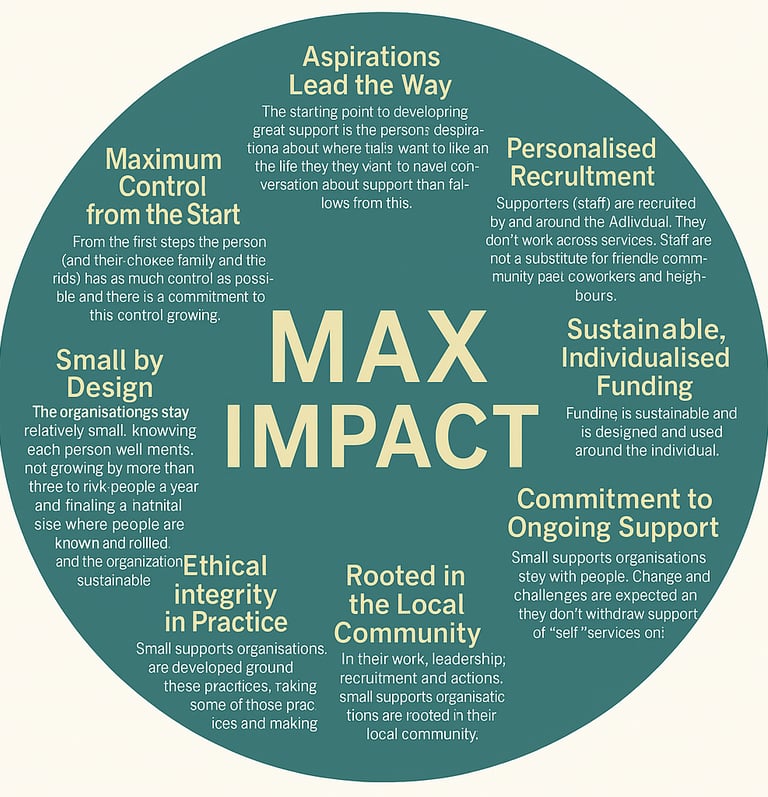

NDTi Expectations for Small Support Organisations
Leadership Culture: Leaders must be values-driven, hands-on, and embedded in the community. They champion citizenship, equality, and inclusion at every level.
Co-Production: People supported (and their families) are involved in recruitment, training, governance, and evaluation of services.
Accountability: Organisations are expected to be transparent, sharing outcomes with commissioners, families, and communities.
Workforce Development: Staff are trained beyond “care tasks” — equipped in community connecting, relationship-building, and rights-based practice.
Evaluation: Success is measured not only by safety and health outcomes but also by life quality indicators (e.g., friendships, employment, belonging, independence).


Plaza Services Limited’s Commitment to the Small Supports Programme
(How PSL will fully align with the Nine Key Principles of Small Support)
Plaza Services Limited is committed to embedding these nine principles in every aspect of our organisation — governance, recruitment, training, commissioning relationships, and frontline delivery.
We will measure our success not by numbers, but by the quality of relationships, the depth of trust, and the life outcomes of the people we support.
PSL’s Vision for Small Supports:
“To create a small, rooted, and enduring organisation where people with complex lives have maximum control, meaningful relationships, and a real home within their community.”
1. Maximum Control from the Start
PSL commits to giving individuals and their chosen circle (family, friends, advocates) genuine power from day one.
We co-design every aspect of support with the person, not for them.
People decide how, when, and by whom their support is provided.
PSL’s care coordinators act as facilitators of autonomy — ensuring people’s voices drive every review, budget discussion, and staffing decision.
Tools such as one-page profiles, “My Important To/For” charts, and decision-making agreements will embed shared control into daily practice.
Our promise: “Control is not given — it is shared, supported, and continually expanded.”
2. Aspirations First, Support Second
PSL will always start with a conversation about a person’s dreams, values, and long-term goals before discussing care tasks or services.
We use strengths-based conversations and person-led planning tools to map “What a good life looks like.”
Support plans begin with outcomes like “living near my sister,” “getting a part-time job,” or “joining a choir,” not with a list of personal care needs.
Every staff member is trained in outcome-based planning and positive risk-taking so that aspirations truly lead the way.
Our promise: “Aspirations before actions — support follows what matters most to the person.”
3. Individually Matched Staff
PSL recruits specifically around each individual, not to fill shifts.
Recruitment starts with “Who is the right match for this person?” rather than “Who is available?”
We involve the person and their family in selecting staff, ensuring shared values, compatible personalities, and meaningful connections.
Once matched, staff remain with that person for consistency and trust — no rotating across multiple services.
Staff are coached to recognise they are partners in support, not replacements for natural relationships.
Our promise: “Right person, right match, right relationship.”
4. Real Homes, Real Choice
PSL believes everyone should have a home that feels truly theirs — not a placement or institution.
We support people to choose where they live and who they live with (if anyone).
Housing and support are kept completely separate to preserve tenancy rights and independence.
We work with housing partners, local authorities, and families to secure sustainable tenancies.
Our role is to make sure people have “a real home in their own community, not just a service address.”
Our promise: “A real home, not a placement.”
5. Individualised and Sustainable Funding
PSL ensures funding is transparent, flexible, and directly linked to the individual’s unique support plan.
Budgets are built around the person’s priorities — not block contracts or provider convenience.
We collaborate with commissioners to secure sustainable arrangements (e.g., personal budgets, ISFs, or CHC-funded care) that evolve as the person’s needs or aspirations change.
Regular financial reviews ensure accountability and fairness.
Our promise: “Funding follows the person, not the provider.”
6. Long-Term Commitment
PSL pledges to stay with each person through all stages of their life — change, crisis, and growth.
We will not withdraw support during challenges or when costs or complexities increase.
Staff and leadership maintain continuity and emotional connection over time, building trust and stability.
Our “Stay Through Change” protocol ensures proactive support planning during hospital admissions, transitions, or behavioural crises.
Our promise: “We stay through change — we don’t walk away.”
7. Community-Based Leadership
PSL’s strength lies in being locally rooted and community-driven.
We recruit, train, and empower staff from the same communities as the people we support.
Partnerships are cultivated with local faith groups, clubs, schools, and employers to build inclusion and belonging.
Leadership decisions are grounded in community relationships — not distant corporate boards.
Our managers and support workers are visible, accessible, and active in local life.
Our promise: “Community is our foundation.”
8. Small by Design
PSL is intentionally designed to remain small, personal, and relationship-based.
We will grow steadily — supporting three to five individuals in Year 1, and expanding only when continuity and quality are assured.
This allows the Registered Manager and leadership team to know every person and staff member personally.
Decisions are agile, communication is direct, and bureaucracy is minimal.
Relationships, not targets, will always drive growth.
Our promise: “Stay small to stay personal.”
9. Ethical Integrity in Practice
PSL recognises that these principles require whole-organisation integrity, not token gestures.
Every policy, supervision, and decision-making process will reflect Small Supports' values.
We will not compromise principles for convenience, profit, or growth.
PSL’s leadership will model ethical behaviour, transparency, and humility — inviting external scrutiny and reflective practice.
Our governance framework, training, and audit systems will all be shaped by these core values.
Our promise: “Integrity makes it real — not theoretical.”
Home, belonging, and the freedom to choose.
Supporting people to live where and how they want — safely and securely.






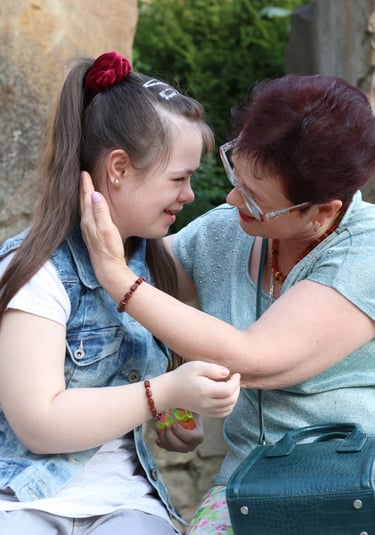





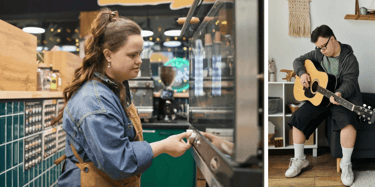

Support
Comprehensive domiciliary care services for your peace of mind.
Help
Service
Email : info @plazaservicesltd.net
Web: https://plazaservicesltd.net
01788631850 / 07456950858
© 2024. All rights reserved.
Created by Nana Amoah
Rugby - Warwickshire
Service Area:
Warwickshire, West Midlands
